ESGAR Junior Research Mentorship Programme 2025/2026 (Peer-to-peer mentorship programme)
PROGRAMME COORDINATOR: Dr. Doenja Lambregts, Amsterdam, The Netherlands
The ESGAR junior research mentoring programme is designed as a peer-to-peer programme where junior researchers can learn from their more experienced peers. One mentee is assigned to one mentor from a different institution based on topic of interest or area of expertise. Mentors are mid-career level ESGAR members who are experienced in research/ education and in presenting research and /or education material at the ESGAR annual meeting.
Application is currtely closed.
The aim of the programme is to follow a stepwise approach (incl. a minimum of 5 meetings) aiming to complete a small-scale research or educational project and prepare a submission for the ESGAR 2026 annual meeting. This can either be a scientific abstract or an educational (poster) submission.
The role of the mentor will be to offer general advice, guidance and feedback. The mentor will not actively participate in the research project itself, nor will the mentee be involved in research projects of the mentor. All data and/or images required to complete the project will need to be collected by the mentee (these will not be provided by the mentor).
The mentor and ESGAR mentor scheme must be fully acknowledged on any publications, posters or presentations arising from the work.
Junior researchers, i.e. residents or young consultant radiologists, who have no or very limited experience in research and seek guidance to set up a (small scale) research or educational project.
Eligibility criteria and required commitment from mentees:
- Junior resident or young radiologist
- (Junior) member of ESGAR in good standing
- No or limited previous experience in research (no PhD)
- No or limited experience in presenting scientific or (educational) work at past ESGAR meetings
- Motivated and able to invest the time to complete a small-scale research or educational project within a 1 years’ time period, aiming to submit an abstract for ESGAR 2026
Important: When applying for the mentorship programme, applicants already need to have a potential topic or project idea in mind. A rough outline of the envisioned topic/project needs to be provided as part of the mentorship application. This will also assist ESGAR in pairing mentees with the most suitable mentor.
Review and selection process:
Only a limited number of mentee positions are available. Applicants will be selected based on eligibility criteria, motivation and their proposed research topic/idea.
Step 1 – How to define your research topic
(Feb 2025)
- Mentees reach out (via email) to their assigned mentors to get acquainted and to plan a first (online) meeting
- During the first meeting, mentors and mentees discuss the proposed topic of research and potential research/educational goals
- Milestones:
- Set up first online meeting
- Mentees prepare a 0.5-1 page document to outline the project idea incl. 1-3 specific goals and/or research questions to be sent to the mentors in preparation for next meeting
Step 2 – How to prepare your project
(March-May 2025)
- Mentees receive feedback on their proposed project outline
- Mentors and mentees plan second meeting to discuss how to set up the research project, e.g. define SMART goals, specify a timeline and set realistic deadlines
- Milestones:
- Second online meeting
- Mentees prepare 1-page project plan with a timeline including specific milestones and deadlines to be sent to mentors in preparation for next meeting and take the first steps to start their project
Step 3 – How to monitor your progress and achieve your goals
(May-Aug 2025)
- Mentees receive feedback from the mentors on their project plan
- Mentees provide mentors with an update on the progress of their project
- Mentors and mentees plan third meeting to discuss how to best monitor the project progress, incl. tips and tricks on time management and important pitfalls, do’s and don’ts
- Milestones:
- Third online meeting
- Mentees write 0.5-1-page project update (incl. preliminary results, if any) in preparation for next meeting
Step 4 – How to analyse your data and report your results
(Sept-Nov 2025)
- Mentees provide mentors with an update on the progress of their project and receive feedback from mentors
- Mentors and mentees plan fourth meeting to discuss how to analyse the project data (incl. tips on statistics if applicable) and how to convert the results into a good quality scientific or educational abstract.
- Milestones:
- Fourth online meeting
- Mentees analyse results and write draft abstract in preparation for next meeting
Step 5 – How to finalise and submit your abstract
(Dec 2025-Jan 2026)
- Mentees receive feedback from mentors on their preliminary abstract
- Mentors and mentees plan fifth meeting to discuss how to optimise the abstract and prepare it to be submitted for ESGAR 2026 (if feasible)
- Milestones:
- Fifth online meeting
- Mentees finalise abstract and submit to ESGAR 2026 (if feasible)
Follow-up and finalisation of mentorship programme:
- Mentees and mentors will stay in touch to monitor progress of abstract submission
- If the abstract is accepted, mentors can optionally offer additional guidance to help the mentees in preparing their work to be presented during ESGAR 2026
- After the 2026 annual meeting, mentors and mentees are required to complete a survey about their experience during the mentorship programme
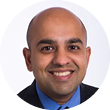
Dr. Gauraang Bhatnagar
Frimley Health NHS Trust/Centre for Medical Imaging, UCL
Frimley, United Kingdom
Main Research Area: Imaging for inflammatory bowel disease

Dr. Roberto Cannella
University of Palermo
Palermo, Italy
Main Research Area: Liver and pancreas imaging
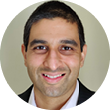
Dr. Manil Chouhan
University of Queensland/UCL Centre for Medical Imaging
Queensland, Australia
Main Research Area: Quantitative MRI, hepato-pancreatico-biliary imaging

Dr. Isabelle De Kock
Ghent University Hospital
Ghent, Belgium
Main Research Area: Small & large bowel, inflammatory bowel disease

Dr. Katja De Paepe
Beth Israel Deaconess Medical Center, Harvard Medical School
Boston, MA, United States of America
Main Research Area: hepato-pancreatico-biliary and historically whole body MRI in oncology
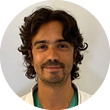
Dr. Marco Dioguardi Burgio
Beaujon Hospital
Clichy, France
Main Research Area: Liver imaging including focal liver lesion (bening and malignant) and diffuse liver diseases; pancreatic imaging mainly including pancreatic cancer; abdominal oncological and vascular interventional radiology with main focus on liver procedures

Dr. Kieran Foley
Cardiff University
Cardiff, United Kingdom
Main Research Area: Esophago-gastric cancer, gallbladder polyps, diagnostic test accuracy studies, prognostic studies

Dr. James Franklin
Institute of Medial Imaging and Visualisation, Bournemouth University
Bournemouth, United Kingdom
Main Research Area: HPB and GI imaging - particularly liver cancer (primary and secondary), cancer detection, OG cancer and benign biliary disease

Dr. Max Lahaye
Netherlands Cancer Institute
Amsterdam, The Netherlands
Main Research Area: Imaging of colon / rectal cancer, peritoneal metastases and ovarian cancer
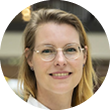
Dr. Monique Maas
Netherlands Cancer Institute
Amsterdam, The Netherlands
Main Research Area: Oncologic imaging with special focus on rectal cancer

Prof. Stephanie Nougaret
Montpellier Cancer Institute
Montpellier, France
Main Research Area: Oncology, AI, radiomics, rectal, pancreatic and gyne cancers

Dr. Anu Obaro
St Mark's Hospital and Academic Institute, Imperial College London
London, United Kingdom
Main Research Area: Colorectal cancer, CT colonography, radiologist performance/training & education
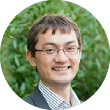
Dr. Andrew Plumb
University College London Hospital
London, United Kingdom
Main Research Area: CT colonography, particularly its application to the NHS bowel cancer screening programme, Crohn's disease, including the role of MRI in predicting clinical outcome and response to treatment, photoacoustic tomography for human vascular and oncological imaging
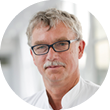
Prof.Dr. Soeren Rafaelsen
University Hospital of Southern Denmark
Vejle, Denmark
Main Research Area: Staging colon and rectal cancer
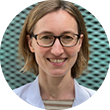
Dr. Caecilia Reiner
Clinic Hirslanden Zurich, Department of Radiology
Zurich, Switzerland
Main Research Area: MRI of the liver, dynamic MRI of pelvic floor dysfunction
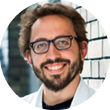
Prof.Dr. Maxime Ronot
Beaujon Hospital
Clichy, France
Main Research Area: Liver and pancreas, interventional oncology, abdominal vascular diseases

Dr. Inês Santiago
Hospital da Luz Lisboa
Lisbon, Portugal
Main Research Area: Colorectal cancer

Prof.Dr. Vincent Vandecaveye
University Hospitals Leuven
Leuven, Belgium
Main Research Area: Cancer imaging, (whole body) diffusion-weighted imaging for staging, functional MRI in oncology, early response assessment and prediction, lymph node imaging, peritoneal tumors, radiomics and AI development for MRI

Dr. Federica Vernuccio
University of Palermo
Palermo, Italy
Main Research Area: Liver, pancreas, GI
